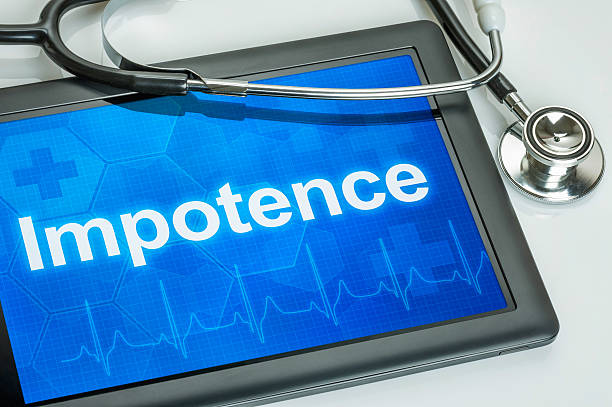Erectile dysfunction (ED) is a common condition that affects many men at some point in their lives. While it’s normal to experience occasional difficulties with getting or maintaining an erection, frequent or persistent issues may indicate an underlying health concern. Factors such as stress, poor circulation, hormonal imbalances, or medical conditions like diabetes and heart disease can contribute to ED.
Recognizing the causes and knowing when to seek professional help can improve not only your sexual health but also your overall well-being and confidence. If you’re experiencing ongoing ED, consulting a healthcare provider can help identify effective treatment options.
What Is Occasional Erectile Dysfunction?
Occasional erectile dysfunction (ED) refers to infrequent difficulties in getting or maintaining an erection. This is a common experience for many men and is often linked to temporary factors such as stress, fatigue, anxiety, or alcohol consumption. In most cases, occasional ED is not a cause for concern and resolves on its own.
However, if these episodes become more frequent, it could indicate an underlying health issue, such as poor circulation, hormonal imbalances, or the early signs of chronic ED. Paying attention to potential triggers and making lifestyle adjustments can help, but if the problem persists, consulting a healthcare provider can provide clarity and effective treatment options.

Common Causes of Occasional Erectile Dysfunction
Occasional erectile dysfunction (ED) can be triggered by a variety of temporary factors. Understanding these causes can help you identify and address the issue. Some of the most common reasons for occasional ED include:
- Stress and Anxiety – Mental stress from work, relationships, or personal worries can interfere with sexual performance. Performance anxiety, including worrying about ED itself, can make the problem worse.
- Fatigue – Poor sleep, overworking, or physical exhaustion can drain your energy levels, reducing both sexual desire and performance.
- Alcohol and Drug Use – Excessive alcohol consumption and recreational drug use can interfere with nerve signals and blood flow, making it harder to achieve or maintain an erection.
- Medications – Certain prescription drugs, including antidepressants, blood pressure medications, antihistamines, and muscle relaxants, can have side effects that contribute to ED.
- Poor Circulation – Erections rely on healthy blood flow. Even temporary circulation issues, such as dehydration, prolonged sitting, or excessive caffeine intake, can impact erectile function.
- Hormonal Changes – Fluctuations in testosterone levels, which naturally decline with age, can affect libido and erectile function. Other hormonal imbalances, such as thyroid issues, may also contribute to occasional ED.
If you notice ED happening more frequently, it may be worth evaluating lifestyle factors, making healthy changes, and consulting a doctor to rule out underlying health concerns.
When Should You Be Concerned About Erectile Dysfunction?
While occasional erectile dysfunction (ED) is typically not a major concern, frequent or persistent issues may indicate an underlying health problem. You should consider consulting a doctor if:
- ED occurs regularly, even when you are not stressed, tired, or under the influence of alcohol.
- You struggle to get or maintain an erection most of the time.
- Your sex drive has significantly decreased, which could point to hormonal imbalances or other medical issues.
- You experience additional symptoms, such as pain, numbness, or extreme fatigue.
- You have risk factors for heart disease, diabetes, high blood pressure, or other conditions that can contribute to ED.
Persistent ED may be linked to poor circulation, nerve damage, hormonal changes, or even early signs of serious health conditions. Seeking medical advice early can help you determine the cause and explore effective treatment options. Addressing ED sooner rather than later can improve both your sexual health and overall well-being.

How to Improve Erectile Function
If you experience occasional ED, making some lifestyle changes can often help. Try the following:
- Manage Stress – Practice relaxation techniques like meditation, deep breathing, or yoga to lower stress levels. Talking to a therapist can also help if anxiety is affecting your performance.
- Exercise Regularly – Physical activity improves blood circulation, boosts energy levels, and supports heart health, all of which contribute to better erectile function.
- Eat a Healthy Diet – A diet rich in fruits, vegetables, lean proteins, and whole grains helps improve blood flow and supports overall well-being. Foods like leafy greens, nuts, and fish contain nutrients that promote heart and vascular health.
- Limit Alcohol and Smoking – Excessive alcohol and tobacco use can lead to long-term damage to blood vessels, making ED more likely over time. Cutting back or quitting can have positive effects on your sexual health.
- Get Enough Sleep – Sleep deprivation can affect testosterone levels and lead to fatigue, which may reduce libido and sexual performance. Aim for at least 7-8 hours of quality sleep per night.
- Talk to Your Partner – Open communication with your partner about any stress, concerns, or fears can help ease performance anxiety and create a more relaxed, supportive environment.
When to See a Doctor
If ED becomes a regular issue, affects your confidence, or creates problems in your relationship, it’s a good idea to seek medical advice. A doctor can help determine if your ED is caused by an underlying condition and recommend appropriate treatments. Some options may include:
- Lifestyle Changes – Improving diet, exercise, and stress management can often resolve mild ED.
- Medications – There are prescription medications, such as sildenafil (Viagra) or tadalafil (Cialis), that can help improve blood flow to the penis. These should only be used under a doctor’s guidance.
- Therapy or Counseling – If stress, anxiety, or relationship issues contribute to ED, therapy can provide tools to manage these challenges.
- Medical Treatments – If ED is linked to a medical condition like diabetes or heart disease, treating the underlying condition may help restore normal function.

Conclusion
Occasional erectile dysfunction (ED) is a common experience and usually not a cause for concern. However, if it becomes frequent, affects your confidence, or seems connected to other health issues, it’s essential to seek medical advice. ED can sometimes be a sign of underlying conditions like heart disease, diabetes, or hormonal imbalances, so addressing it early can improve both your sexual health and overall well-being.
Taking proactive steps—such as maintaining a healthy diet, exercising regularly, managing stress, and avoiding excessive alcohol or smoking—can support better sexual function. If you’re experiencing persistent ED, don’t ignore it. Your body may be signaling a deeper issue, and consulting a healthcare provider can help identify the cause and find effective treatment options. Prioritizing your health now can lead to a more fulfilling sex life and long-term wellness.

